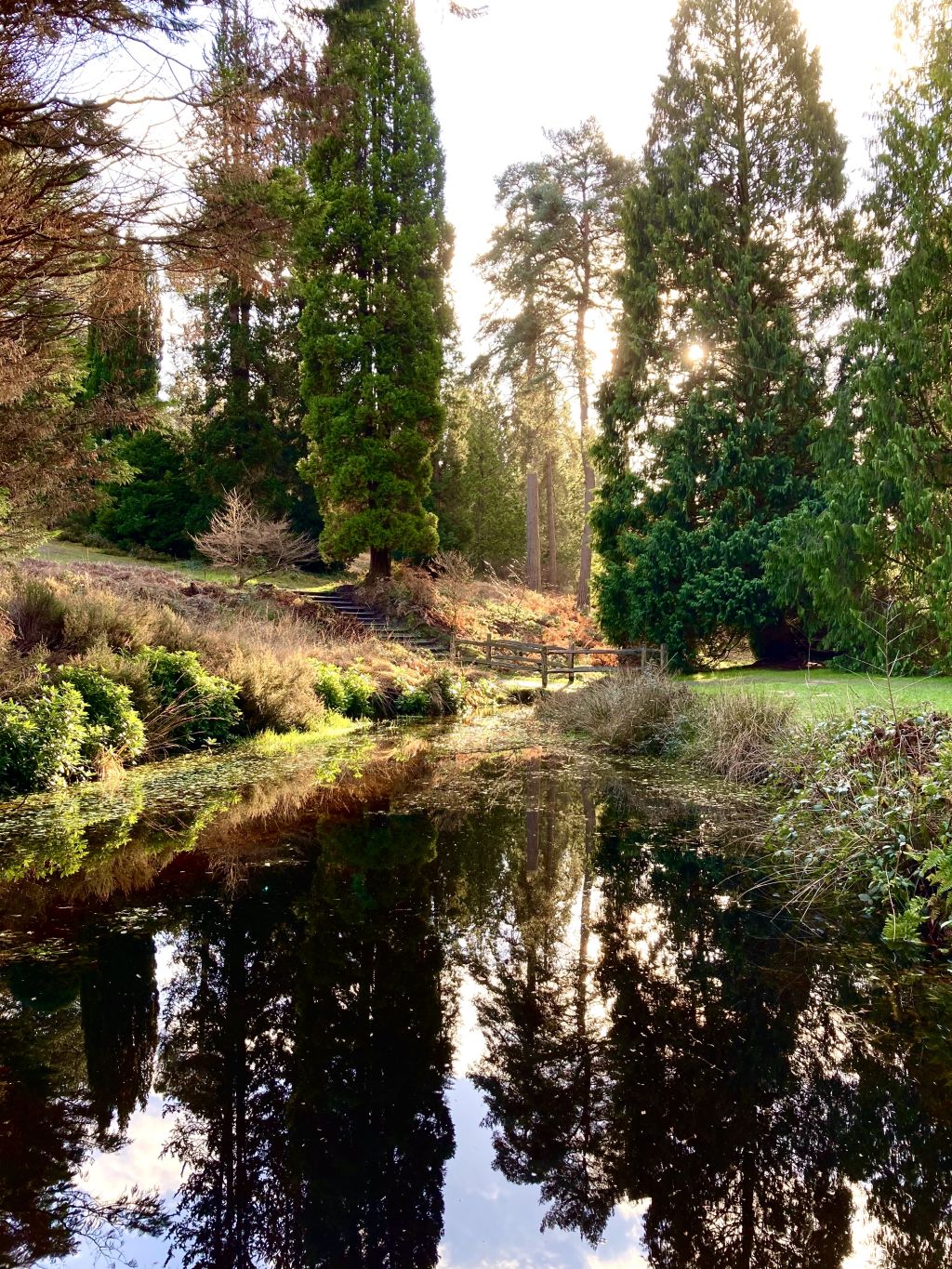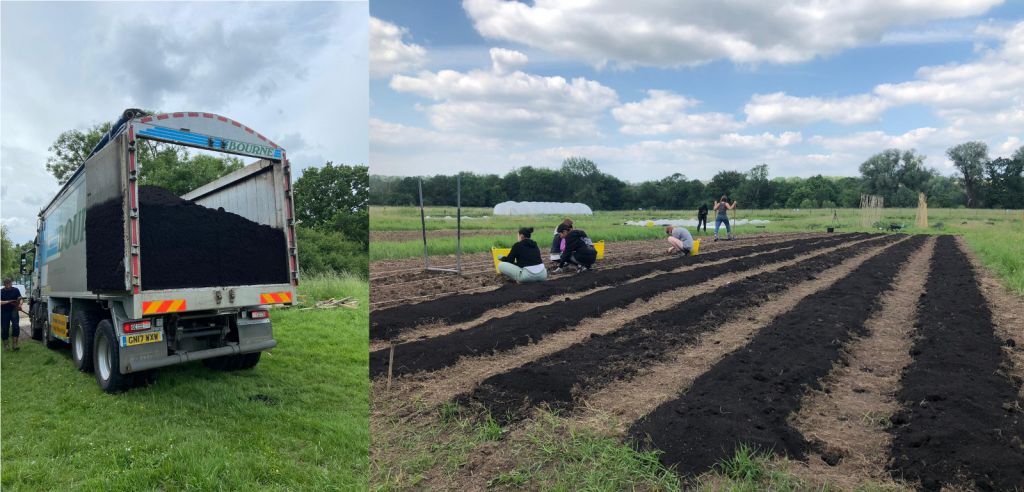
Here’s five ways to prep your garden for the season ahead
After a long, hot summer we’re finally starting to wind down and head towards autumn. While September typically does see days of balmy temperatures, there’s also darker, cooler nights and misty mornings to signal that autumn is around the corner.
This transitional stage is a great time to take stock in your garden and get a few things in place before the next season arrives.
Watering well
Extend flowering of your plants, especially those in pots by continuing to water them, even when there's been wetter days.
Rainwater tends not to permeate the soil, so plants still need watering to prolong their lifespan - it's an easy way to ensure some autumn colour in the garden.
Revive your roses
We often think of roses as a summer flower, but they can actually flower well into the autumn if you give them a little TLC now. Deadhead them now before autumn arrives to encourage them to continue to bloom. It's also a good idea to check for any black spots on leaves and remove any affected leaves, too.
Prep your pond
Falling leaves in your pond can cause sludge and will rot, so to avoid a bigger job later down the line, trim back any overhanging trees and plants. You could also install netting over the top of the pond to catch leaves and stop them falling into the water.
Tap water can cause algae to form in the pond due to the chlorine, so where possible try to use rain water to top up your pond. If you don’t have a water butt in the garden then installing one now is also a good idea before autumn, as with the wetter winter weather you should be able to build up some good reserves.
Get your lawn in order
It’ll soon be time to stop mowing for the year but before you do, spend a bit of time creating tidy edges - you'll thank yourself in the spring!
It's also worth investing in some autumn lawn treatment to help protect your grass over the colder months - it'll act to retain moisture and give your lawn the vital nutrients it needs.
Wood working
Over the year, wooden fixtures in the garden can get tired and broken. Before the harsh weather sets in and causes more issues, take a look at your fences, raised beds, compost bins and sheds and fix any obvious damage, remove old, chipped paint and add any weather proofing materials that might have become less effective over time.
Or, if it's time to invest in some new fixtures, take a look at our raised bed kits and compost bins.

Well, we’re not entirely sure how it happened, but somehow the summer holidays have come to an end and we’ve reached September - the month that sees a change in season and a change in focus in the garden. With the kids heading back to school this month, we thought we’d offer a helping hand with any of those burning gardening questions they might have - you just never know when compost facts might crop up in class, after all! (Or, for the adults it might serve as helpful pub quiz content…)
What do plants eat?
Much like us humans need food and water to survive, plants also need food and drink - but it’s not the same as us eating some cereal or drinking some juice. Plants are actually really clever and are able to make their own food - they’re one of the only living organisms on the planet that are able to do this, and most of the earth’s creatures eat plants so there’s lots of people and animals relying on them!
During the day, plants breathe in carbon dioxide through their leaves. They use sunlight and the green from their leaves to make sugars from the carbon dioxide, which gives them energy to grow. This is called photosynthesis.
Plants also need water for photosynthesis - they absorb water and other nutrients through their roots, and this water is then used by the plant to help make the sugars they need.
What is soil?
Soil is the loose surface we find outside where plants grow, but it’s more than just dirt. It actually takes thousands of years to form, and it’s made up of all kinds of things, from decayed plants and animals to rocks and minerals. Plants use soil to help them grow - their roots grow into the soil, and then the nutrients in the soil help to feed the plants.
Soil is also where lots of insects and animals live - earthworms, ants and some beetles all live in the ground.
Sometimes, the soil we have in our gardens isn’t the right type to grow the plants we want to grow, so we can add different mixes to the soil to give the plants a helping hand.
Why are worms good for the garden?
Earthworms are really good for the garden because they help to keep the soil healthy. They eat decaying plants but they don’t damage plants and flowers like slugs and snails do.
Worms are also really helpful in the garden if you’re making your own compost, because they can help to speed up the composting process by eating food scraps and then digesting them, which turns them into compost.
What is compost?
Compost is usually made from food and garden waste - so that’s the things you’re getting rid of, like old vegetables or flowers you’ve dug up in the garden. All of the ingredients mix together and over time they start to decompose. Then, the compost mixture can be used on your soil to help improve it because it has lots of nutrients in it, which help plants to grow.
You can make your own compost in your garden or you can get ready made composts which can help if you have a particularly tricky soil where you can’t plant some flowers and plants.
How do you make your own compost?
It’s easy to make your own compost, you just need the right mix of materials to make it work. Good compost is made up of half green materials (things like grass or hedge trimmings), and half brown materials (things like twigs or cardboard).
Choose a sunny area of the garden, and if you’re making a compost bin, put it here - but make sure to place it directly onto the earth as this speeds up the composting process and helps worms and other creatures easily get into the compost to help break it down.
Turn the compost occasionally and also be sure to keep the rain out so it doesn’t turn into a sludgy mess!
The compost should take about 6 months to be ready. Once it’s done you can use it in the garden on your soil to help grow flowers, plants and vegetables.
How do you grow your own vegetables?
Firstly, pick which fruits and vegetables you like to eat, because these will be the most fun to grow. Vegetables like courgettes, beans and tomatoes are all easy to grow, or you could even try planting some strawberries.
Lots of fruits and vegetables can be grown in pots and in small spaces, but if you have the space in your garden it’s a good idea to create a dedicated vegetable patch. You can also make a raised bed to grow your fruits and vegetables in, which will help keep the weeds away and keep your crops separate from the rest of the garden.
Different vegetables grow at different times of year. If you’re growing courgettes you can plant them from seeds and you’ll want to do this by starting them indoors in the springtime (around April) and then sowing them into the ground in May once it’s no longer frosty.
For carrots, these seeds can be planted straight into the ground any time from March to June. Tomatoes grow best in pots or containers, and a peat free compost works best. Plant tomatoes in late spring (May/June) when the weather is warming up. They take about 12 weeks to ripen, and then you’ll have your own crop of juicy tomatoes to enjoy.



